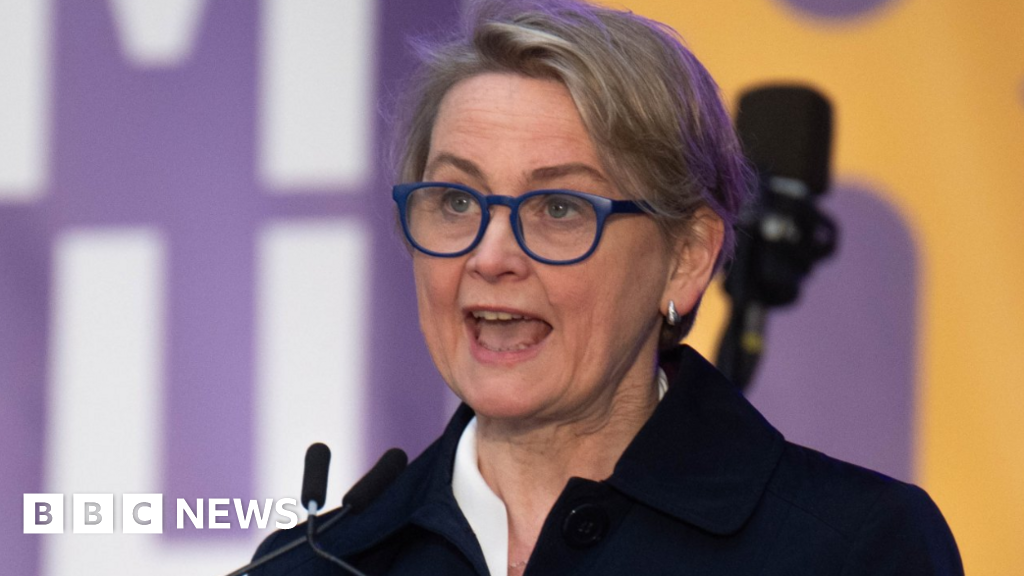ARTICLE AD BOX
Image source, Getty Images
Boris Johnson has defended the government's response to rising living costs, warning further action now could make the situation worse.
The PM acknowledged there was "more that we can do" to help with prices, but it was important to do this over the "medium to long term".
He warned a bigger uplift to benefits - demanded by opposition parties - could lead to an "inflationary spiral".
Labour accused him of offering "no answers" to a "cost of living crisis".
Political parties are arguing over living costs, ahead of local elections in England, Wales and Scotland, and for Northern Ireland's government.
Inflation is at a 30-year high of 7%, driven upwards by surging food and energy prices, and is expected to rise further later this year.
The government has announced a council tax rebate and repayable discount on energy bills, but is facing calls to go further now to help with costs.
It has also faced criticism that the 3.1% rise in the state pension and other benefits is not keeping pace with inflation.
Speaking on ITV's GMB programme, Mr Johnson accepted support so far "isn't going to be enough immediately to help cover everybody's costs".
"There is more that we can do but the crucial thing... is to deal with the prices over the medium to long term," he added.
Mortgages warning
But asked whether there should be a more generous uplift to benefits, he warned this brought the risk of triggering an "inflationary spiral".
He added: "We have a short term hit caused by the spike in energy prices across the world.
"If we respond by driving up prices and costs across the board across the board in this country, responding by the government stepping in and driving up inflation, that will hit everybody.
"And that will mean that people's interest rates on their mortgages go up, the cost of borrowing goes up, and we face an even worse problem."
Opposition parties have suggested hiking taxes on oil and gas companies to pay for bigger support payments to help households with energy bills.
They have renewed their calls on Tuesday, after BP announced its profits for the first three months of this year have more than doubled.
Liberal Democrat leader Sir Ed Davey said the news made the government's unwillingness to impose a windfall tax on energy firms "impossible to justify".
But Mr Johnson rejected a windfall tax on energy firms in his ITV interview, arguing it would discourage investment from private firms in renewable energy projects.
Speaking to the BBC, Labour leader Sir Keir Starmer said BP's profits announcement "reinforces the case" for a windfall tax.
Asked whether it might deter investment, Sir Keir said his party's proposal was for a year-long tax increase on "profit they didn't expect to make".
He criticised the government's response, saying: "Overall, the cost of this government is that families will be £2,000 worse off and the government's got no answer to that for so many families.
"The national insurance rise is going to hit working people in the middle of a cost-of-living crisis."

 2 years ago
35
2 years ago
35








 English (US) ·
English (US) ·